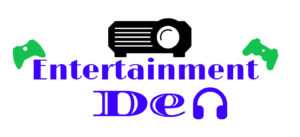Introduction
If you’re new to this site then welcome! This site is all about man cave, home theater, and gaming room set ups. This article, more specifically, will cover some commonly asked questions about gaming headsets.
Most gaming headsets are USB. I’m sure a lot of people, just like me, were wondering why. This article will help you understand why USB headsets exist as well as aux cord ones as well. From the research I did and from my own experience, there aren’t a whole lot of differences. What you will find is that there are situations other than gaming where it makes sense to get one over the other. But for now, I’ll explain both of them with respect to only gaming headsets for consoles and PCs.
You’re definitely not majorly losing out for choosing USB or aux BUT there are some good things to know so be sure to read this article to understand the most important things. You’ll find that most gaming headsets are connected via USB for a few reasons.
So why do gaming headsets have USB?
It’s more common for gaming headsets to have a USB connection because they are more universally accepted by PCs and consoles. USB headsets have multi-sound channels that provide a better experience with respect to surround sound and lag-free response time. In general, USB headsets will have fewer calibration issues because this input type serves as its own sound card driver. Auxillary gaming headsets connect directly to the systems sound card and on occasion, require installed drivers to function properly. It’s more simplistic and convenient for gaming companies to come out with USB gaming headsets because of the reasons mentioned above.
A quick note worth mentioning: I honestly don’t have an exact preference on whether I game with an aux headset or a USB one. I’m not a professional gamer and I don’t have super specific needs. This article is written in a way that is meant to help you understand why companies make USB headsets more commonly than their counterpart.
Why USBs are a Common Choice for Gamers
USB headsets have zero response lag. Bluetooth and aux cords cause the user to sometimes experience a disruption to sound output. Bluetooth connections can lag depending on the quality of the Bluetooth receiver.
What’s interesting is that USB cords don’t connect directly to the systems sound card, unlike aux cords. There are very few issues with setting up and pairing too. This means it is super convenient to plug and play whether on a gaming pc or a console.
USB cords are way more durable than aux connections. Everyone’s experience varies, but I can’t recall a time in my life where I broke or severed a USB input or output that interfered with my ability to play and receive sound. I can recall multiple times where an aux cord went bad or got bent to the point where the sound wasn’t as good a quality as before.
My only annoyance with USB gaming headsets:
There’s one thing, in particular, I don’t like about USB gaming headsets.
Almost all USB gaming headsets come with excessive cord length. I’ve never really had a set up where I needed 4ft of cord hooked up to my gaming system. My brother games further away from the TV but we still have to rubber band to excess so it doesn’t get tangled or tripped on.
There was one gaming headset, in particular, I didn’t like. It was USB and analog! The USB cord had to get plugged in to the PS4 and the analog cord went into the PS4 controller. This type of set up is overly redundant and there are plenty of other USB headsets that don’t require two separate cords. I know most of them do, but there are products that consolidate better than the way our old gaming headset was split.
I couldn’t find a lot of good products that come with a shorter cord unless it’s an aux input. It seems to me like companies provide this as a common feature because having too much is better than too little. Planning cord management is key then. If you find a better way to keep excessive cords in check other than doing the rubber band method, please let me know!
A Good Examples of USB Gaming Headsets
This article isn’t a buying guide but it is useful to understand what makes a USB gaming headset good. Any good headset, in general, will have 50mm drivers, 15-26000 hertz response time, 19 oms, and memory foam ear pads. In addition, you also want to be on the lookout for a headset that has the following qualities:
Steelseries Arctis 5
- Cord length isn’t too long. This is a big one for me and for a lot of people. Most people don’t use the full length of their headset cord.
- USB cords aren’t thick and don’t take up a lot of space. The chat dial on the USB cord isn’t big and bulky. I hated how my old gaming headset had bulky cords, chat dials, and an excessively long dial cord. Luckily this one doesn’t have any of these issues.
How do these compare to wireless gaming headsets?
Wireless gaming headsets are more expensive and have slightly more lag associated. They’re more expensive because of the electrical wiring of how they’re put together.
They also have to heavily rely on their own ability to process surround sound and input from the Bluetooth receiver because they can’t directly connect to the system’s sound card. Inevitably they’ll have more lag too. You can have the best wireless headphones but if the computer doesn’t have a good receiver then you will still experience lag, especially if there is something like a desk physically interfering with it.
Wireless gaming headsets have a limited battery life. This is also part of the reason they’re more expensive. Most likely you’ll have to charge them on a dock or plug them in every time you finish a long gaming session. It’s not fun when you didn’t charge your headset but want to use them as soon as you come home to game.
That doesn’t mean all wireless gaming headsets are bad! I just don’t recommend the ones that have anything less than great reviews on Amazon or Youtube. There’s a lot of poor articles from big sites that don’t provide good insight into what the best headsets are of the year. Youtube reviews are definitely the way to go because you can see people test the mic and see how they connect to the setup.
It makes sense to get a wireless headset if you don’t mind having to charge it, has good drivers and a quality Bluetooth receiver that doesn’t impair reception if there is any physical interference.
Related Questions
Can you only use a USB headset on PS4 and XBOX? No, if you get a Bluetooth headset that has a Bluetooth USB plugin, then you will be able to transmit sound from the console. Consoles can’t traditionally sync with Bluetooth devices the same way a gaming PC does. Maybe the newer generations will have this feature.
Are USB headsets more expensive than Analog / Aux headsets? No, they tend to be around the same price. They have slightly different hardware, but not in a manner that noticeably affects the price. Things like hertz and om metrics will up the price if they have more of them. At the end of the day, both of them are wired so they’ll both be cheaper than wireless.
Do Bluetooth headphones have better quality than wired? Not necessarily. There can be a little bit of lag for wireless headphones, but the sound quality will be just as good as a wired headset of equivalent price/quality.
I found this to be true after researching a bunch of products before I made the decision to buy Sennheiser Momentums.

Conclusion
USB headsets are ultimately designed to be simple and easily customizable for the user. Yes, they tend to come with extra features like speech dials and longer cords, but it does help provide a more immersive experience. I’ve found that they’re better for people who use mics when gaming because they have better audio quality and control. I currently game using the ones in the picture above but I definitely think my brother’s USB headset has a way better mic than mine.
If you want to find some more information specific on USB vs Analog headsets, be sure to check out my article here. As always, if you have any questions, comments, or if I missed something, feel free to reach out at entertainmentden.ns@gmail.com and I’ll do my best to respond!
I’m currently taking article suggestions or topics if you guys have any. Until then, be sure to check back for the next article and thanks for reading!


